/PAlogo_v2.gif) |
|
Post Reply 
|
| Author | |
Nightfly 
Special Collaborator 
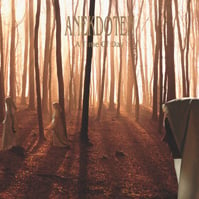
Honorary Collaborator Joined: August 01 2007 Location: United Kingdom Status: Offline Points: 3659 |
 Topic: John Wetton Topic: John WettonPosted: August 08 2011 at 16:34 |
|
Very interesting. The new album just arrived today actually but haven't had chance to listen yet - looking forward to it.
|
|
 |
|
memowakeman 
Special Collaborator 
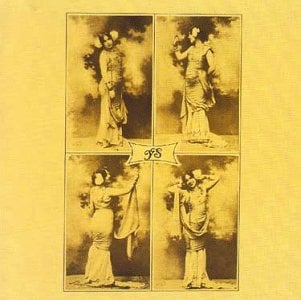
Honorary Collaborator Joined: May 19 2005 Location: Mexico City Status: Offline Points: 13032 |
 Posted: July 29 2011 at 10:15 Posted: July 29 2011 at 10:15 |
|
Great interview!
|
|
|
Follow me on twitter @memowakeman |
|
 |
|
caretaker 
Forum Senior Member 
Joined: April 19 2010 Location: united states Status: Offline Points: 288 |
 Posted: July 20 2011 at 20:08 Posted: July 20 2011 at 20:08 |
|
Enjoyed it very much. Thanks for posting. Love Wetton's work, especially with UK and his solo stuff. Also does a damned fine live show.
|
|
 |
|
Horizons 
Collaborator 

Honorary Collaborator Joined: January 20 2011 Location: Somewhere Else Status: Offline Points: 16952 |
 Posted: July 19 2011 at 17:55 Posted: July 19 2011 at 17:55 |
|
Terrible album cover lol. Great interview.
|
|
 |
|
Icarium 
Forum Senior Member 
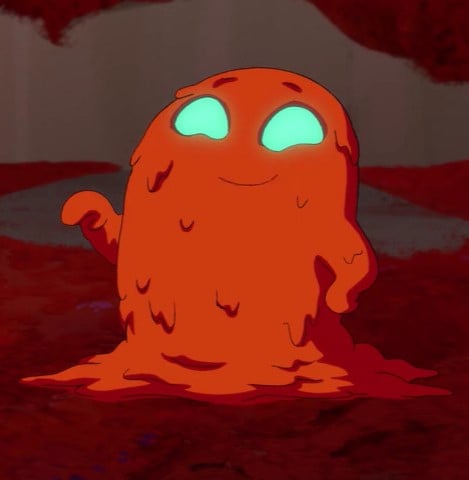
VIP Member Joined: March 21 2008 Location: Tigerstaden Status: Offline Points: 34050 |
 Posted: July 19 2011 at 15:55 Posted: July 19 2011 at 15:55 |
|
he is a Steely Dan fan
 and Maroon 5 fan and Maroon 5 fan 
|
|
 
|
|
 |
|
cstack3 
Forum Senior Member 
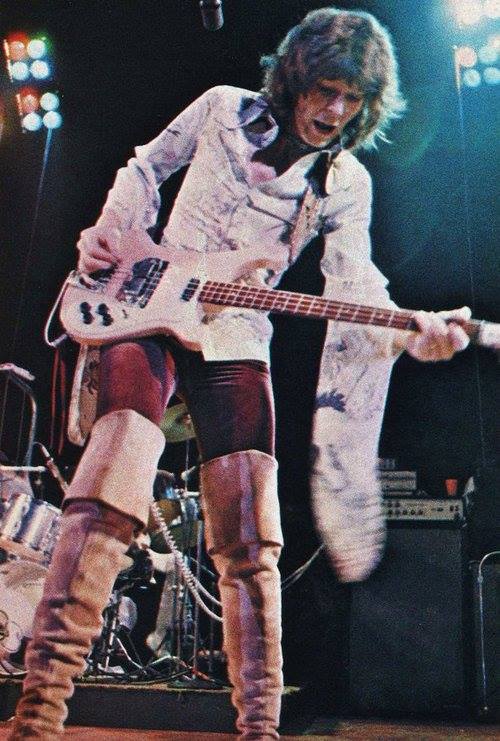
VIP Member Joined: July 20 2009 Location: Tucson, AZ USA Status: Offline Points: 6740 |
 Posted: July 19 2011 at 14:35 Posted: July 19 2011 at 14:35 |
|
Thanks for posting, John Wetton is one of the most amazing & prolific talents in prog history! Seems like a very nice chap as well.
|
|
 |
|
Mellotron Storm 
Prog Reviewer 
Joined: August 27 2006 Location: The Beach Status: Offline Points: 12897 |
 Posted: July 19 2011 at 14:04 Posted: July 19 2011 at 14:04 |
|
I really enjoyed that. I just read another interview with him in the Classic Prog magazine. Man he's been on some monster albums.
|
|
|
"The wind is slowly tearing her apart"
"Sad Rain" ANEKDOTEN |
|
 |
|
lazland 
Prog Reviewer 
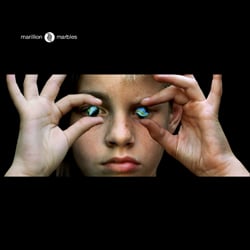
Joined: October 28 2008 Location: Wales Status: Offline Points: 13239 |
 Posted: July 17 2011 at 13:38 Posted: July 17 2011 at 13:38 |
|
Nice interview

|
|
|
Enhance your life. Get down to www.lazland.org
|
|
 |
|
toroddfuglesteg 
Forum Senior Member 

Retired Joined: March 04 2008 Location: Retirement Home Status: Offline Points: 3658 |
 Posted: July 17 2011 at 12:44 Posted: July 17 2011 at 12:44 |
|
John Wetton does not really need any introduction. He is one of the greats in this scene. He has just released a new album and Drew Vreeland contacted him on behalf of www.MuzikReviews.com where this interview was originally published. They c/o Keith Hannaleck ("MuzikMan" here in PA) has kindly allowed us to publish this interview in ProgArchives. Enjoy ! @@@@@@@@@@@@@@@@@@@@@@@@@@@@@@@@@@@@@@@@@@@@@@@@@@@@ Early one morning I got to connect with solo artist and Prog-Rock powerhouse John Wetton [formerly of King Crimson, UK, Asia, et al.] over Skype at his home in Dorset, England. Once we ironed out the wrinkles in our trans-Atlantic transmission (or rather Ė ignored them completely) we set down to what turned out to be a very enjoyable first time Skype experience for this inquisitor: discussing his latest release, Raised In Captivity. Specifically: the Ďwhoí and the Ďhowí, with a little of theí whyí thrown in for good measure. Brass Tacks, you might call it, but I call it a good time.
Well Raised in Captivity certainly has a nice ring to it; it was good that you had the time to let that kind of cool off and be able to bring it back again. And I think now as well as then it has an appropriate connotation for how people are living: trapped and surrounded by media, surrounded by information and the speed with which weíre expected to process and assimilate things has us hemmed in, and thatís appropriateÖ
This could all be on a database somewhere forever. Weíre constantly being recorded, you know, whenever youíre walking down the street youíre being recorded by hundreds of cameras that you canít see, so youíre in a goldfish bowl, whether you like it or not. I guess the question is: is it better to be aware of it or to live oblivious to the cage youíre in?
And the other artists that you were involved in with this album [Raised in Captivity] are all artists that youíve worked with before as well. Now was thisÖ Iím sorry I donít mean toÖsorry, let me just backtrack about Billy Sherwood: thatís how I got to meet him. I know heís been involved with Yes and all sorts of bands, but I got to know him through doing these tribute albums. And I knew that he was fast, I knew that he was good, and I knew that he could work with me on this one. Heís very creative; heís very musical, and very intelligent. And also we get on fine; we have a very similar sense of humor. We get along OK and thatís really important when youíre in a room with someone for like three months. If you donít like someone when you go in, you will detest them after the first day, and it will become untenable. So, itís good that we got to share a few laughs along the way. Heís a lovely guy to work with, heís a very very good engineer, and he co-wrote most of the songs on the album. Well you just answered my next question, which would have been: what role did Billy Sherwood play in the composition process, and how long did it take you to wind up with the finished product?
And what role in the writing process, if any, did the artists that you worked with on the album play? I know a lot of them were people youíve worked with before, so was this sort of you and Billy Sherwood together calling people who you felt could fill the gaps appropriately?
And earlier you said that youíre always writing, youíre always generating ideas, and these ideas find an outlet in various projects depending on who you happen to be writing with, but is there anything you write that you want to save for yourself? Is choosing among favorite songs like choosing a favorite child, or do you have clear favorites and you know where you want them to end up?
[Laughter] I donít recall specifically, but it was a good answer. Oh, it was about your ideas finding an outlet, but you definitely covered thatÖ [Laughter] Oh yes yes. Well in other words when Iím writing with Geoff Downs, itís either me acting as a catalyst for his vehicle or him acting as a catalyst for my vehicle. So we have a pretty good symbiosis, Geoff and myself. We know each other very very well, and we know...if heís got a particular axe to grind with the idea of a song, then Iíll go along with it and Iíll support it, rather than saying ďOh, we canít do that.Ē My job is to support, or I would expect him to do the same for me if I come up with an idea thatís just slightly off the wall. So we have a good rapport in that department. Well doing some shows together might be a good way to test the waters and see if some of that chemistry still exists between the members. JW: Exactly. On the last tour of UK, we ended the show with Geoff, myself and Eddie, piano and voice doing ďRendezvous 6:02,Ē the end of a fairly, sort-of frenzied two hour set. It was gorgeous. People were really into it, they loved it. They loved the fact that there was no one else on stage; it was just the three of us, we started it, and it was really a tearful moment. And we leave the stage going ďThat wasnít bad, was it? Come on, come on, that wasnít bad.Ē Maybe we could do it again, I donít know. Is the composition process for you still a process of trial and error or by now do you know what you want to say, you know how you want to say it, and then itís a polishing and fine tuning more than it is experimentation and a well-letís-see-whatís-the-best-way-to-do-this type of approach?
Thatís a good message to take away from the album. I hope so, I hope so. Has your approach to making music changed in the last decade or fifteen years with new technologies? I mean what could take you two months in a studio in the late seventies or early eighties you could do in an afternoon now on someoneís laptop in a garage or in a back yardÖ [Laughter] Yes thatís trueÖno it hasnít, actually. No, it hasnít. But yeah, youíre right, the only reason really today for going to a proper studio is to use the toys when youíre mixing the damn thing. Because everything else, as you said, everyone has the capability to do multi-track recording now.
They scheduled it, I thinkÖ JW: Where were we? Maybe theyíre calling because our time is almost up; I was told we had twenty minutes for this interview. Itís not quite up yet, youíve got another three minutes**. Iím sorry what was the question? We were talking about new technologiesÖ
Like the music player, iPod competitor thing? Thatís it. Records rehearsals brilliantly, as a little stereo digital recorder. Thatís a nice plug for Zune in the interview; you should get free ones now. Yes it is. [Laughter] Product placement. If you could see me, youíd see a little picture of it as well***. It goes from there, to multi track recording in a studio. It doesnít go anywhere else. If it happens to be Geoff Downes studio we do it in, or wherever itís going to be, thatís where it goes from. If it works on the piano, still after fifty years of doing this, if it works on the piano it will work in the studio, because then you can always strip it back to being played on the piano again. I can sit in front of an audience with a piano or an acoustic guitar and play 95% of the songs that Iíve written, with an acoustic guitar or a piano, and to me thatís what I bring to the party. How it gets dressed up is down to which particular environment itís in: which band Iím playing in or which records weíre making. For me, if I can strip it back down to being played on an acoustic guitar and sing it, or play it on a piano then itís fine. And thatís an important element that youíve brought up: live musicianship. Because there are artists that can make a finely polished studio album that will not translate on stage and there are live acts that are incredible but canít get it together in the studio and are sloppy and fall apart. It seems you walk a tight line between the two, getting good sound in the studio, creating that good sound (or recreating it) live, and thatís an important element. Itís a different animal. For me the song has to come first and whichever way it gets dressed up is just whatever happens. Sometimes youíll use a particular technique thatís kind of trendy, you know, in the studio. You still canít do that when youíre just performing in front of an audience with a piano Ė you canít do that, there are no gimmicks available. Itís just got to be your voice and the instrument. And the emotion from the song. Now are there any artists currently that you are following, or are you just involved in your projects and your business? Does it afford you the time to pursue other acts? I donít listen to a lot of stuff. I do try to go to live gigs. I went to Ringoís gig at the Bournemouth International Center last week; I went to see Mostly Autumn at The Brook, a little club in Southampton. I do get out to see acts if theyíre playing locally. I feel itís almost a duty, if I want to make sure music stays live then I should damn well get out there and support it, you know? Whether itís in the Bournemouth International Center which is 4000 seats or whether itís in The Brook in Southampton which is about 200. Itís my duty to go out and see live stuff, but listening to stuff at home, or in the carÖwell the last album I bought was Maroon 5, and the reason I bought it was because Mutt Lange produced it and I wanted to see what he was up to and itís fantastic. Itís like Def Leppard twenty years on. Itís Mutt Langeís album with Adam Levine Ė is that the singer from Maroon 5? Ė with Adam Levineís voice, with Mutt Langeís album. Thatís it, but itís great. Itís very very good. I go through a phase when Iím actually thinking what to write about where Iím open to everything. Iím looking at the world and taking little bits from everywhere, and then when the idea comes to write the song Iíve got plenty to draw on. Iíve got a lot of images, a lot of phrases, a lot of stuff stored up in my squirrel pouch, and I can pull them out and use them. When Iím actually in there recording it, I view it as a sort of cone. Because Iím going into this cone, and at the outset, everything is available Ė like I said when Iím writing it, itís all there, the whole world is at my fingertips. As I walk into this cone, it gets narrower and narrower and narrower until Iíve reached the end. And then thereís nothing, there are no options left. Thatís it. Youíre done. Itís over. If I start to walk out through the other side of the cone it all opens up again and Iím absolutely screwed. And Iíve seen people do that and the cost of making an album goes from like five thousand dollars to fifty thousand dollars overnight because theyíve walked through the other side of the cone, everything becomes available and you donít know what to do. But if I follow the cone, when I get to the end itís done. Whether itís writing or whether itís recording, itís done. Well thatís fantastic. Is there anything youíd like to conclude on, any note that youíd like to add that you donít feel weíve covered? Nope, I think weíve done it. [Laughter] That was great, thank you. Well this was a pleasure. You enjoy the rest of your day, Mr. Wetton. You too, thank you very much indeed. God Bless you, Bye bye. Bye.
Thank you to Drew, John and Keith for this interview John's PA profile is here Edited by toroddfuglesteg - July 17 2011 at 14:30 |
|
 |
|
Post Reply 
|
|
| Forum Jump | Forum Permissions  You cannot post new topics in this forum You cannot reply to topics in this forum You cannot delete your posts in this forum You cannot edit your posts in this forum You cannot create polls in this forum You cannot vote in polls in this forum |